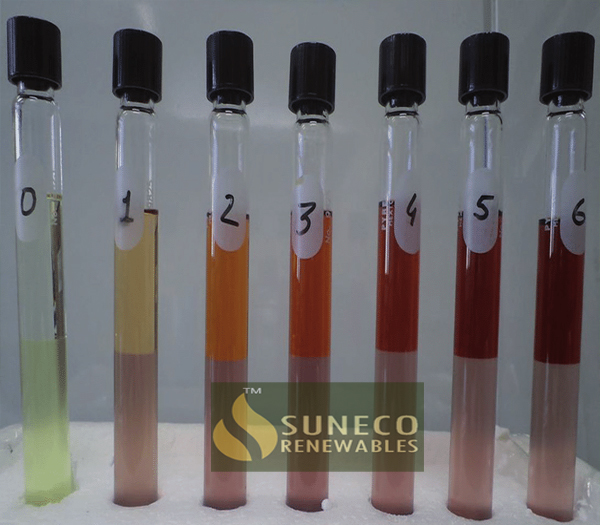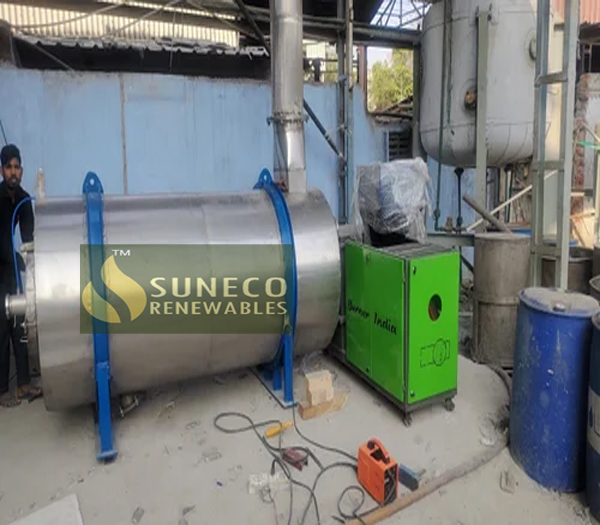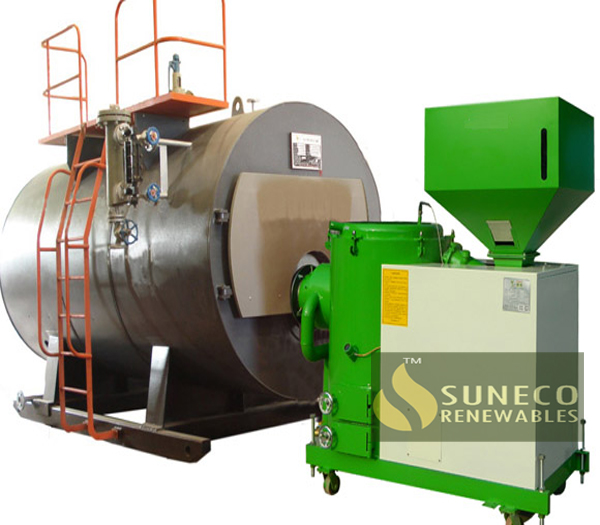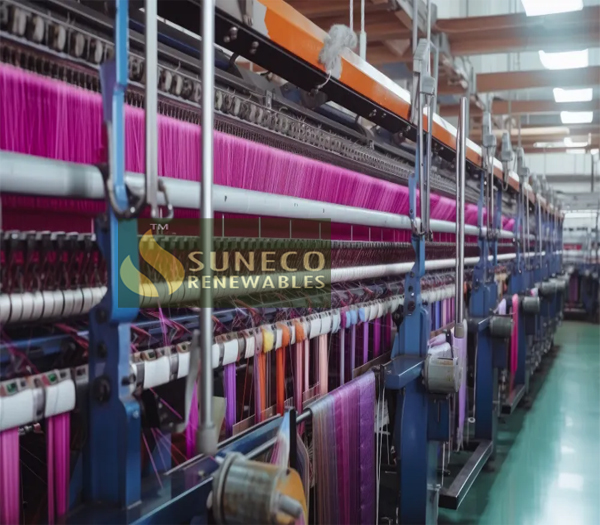We Serve
Chemical Industry
In the chemical industry, biofuels are used as raw materials or feedstocks to produce a variety of chemicals and bioproducts. Bio-based feedstocks, such as bioethanol, biodiesel, and biogas, can be transformed into essential chemicals like ethylene, propylene, and methanol, which are used in the manufacturing of plastics, solvents, and other industrial products. Utilizing biofuels helps the chemical industry reduce its reliance on petroleum-based resources, lower carbon emissions, and support the transition to more sustainable and environmentally friendly production processes.

Thermal Power Plant
A thermal power plant using biofuel operates by burning organic materials like agricultural waste, wood chips, or specially grown energy crops to generate heat. This heat is used to produce steam, which drives turbines connected to generators that produce electricity. The plant may also have systems for emissions control to reduce pollutants. Using biofuel as a fuel source makes the plant more sustainable compared to fossil fuels, as biofuels are renewable and can help reduce greenhouse gas emissions.

Food Processing
In the food industry, biofuels are used primarily as a renewable energy source for processing and transportation. Companies may use biodiesel, derived from vegetable oils or animal fats, to power machinery, trucks, and generators. Some facilities also use biogas, produced from organic waste, to generate heat or electricity for food processing operations. Utilizing biofuels helps reduce the carbon footprint of the industry and can support sustainability goals by turning waste products into energy.

Gasification Industry
In the gasification industry, biofuels are used as feedstock to produce syngas (a mixture of hydrogen, carbon monoxide, and other gases) through the gasification process. Biomass, such as wood chips, agricultural residues, or organic waste, is heated in an oxygen-limited environment to convert it into syngas. This syngas can be further processed into electricity, heat, or synthetic fuels. Using biofuels in gasification offers a renewable and cleaner alternative to traditional fossil fuels, contributing to lower carbon emissions and sustainable energy production.

Colors & Dyeing
In the color industry, biofuels are used as sustainable alternatives in the production of pigments, dyes, and inks. Bio-based solvents and oils derived from renewable sources, such as plant oils or bioethanol, are used in the formulation of colorants. These bio-based components help reduce the industrys reliance on petroleum-based chemicals, lowering environmental impact and promoting eco-friendly practices. Additionally, the use of biofuels can improve the biodegradability of products and support the industrys shift towards greener and more sustainable manufacturing processes.

Hot Air Generation
In hot air generation, biofuels are used as a renewable energy source to produce hot air for industrial processes like drying, heating, or curing. Biofuels such as wood pellets, agricultural residues, or biogas are burned in specially designed furnaces or boilers, generating hot air that can be directed into various applications. This approach provides a sustainable alternative to fossil fuels, helping industries reduce carbon emissions and energy costs while utilizing locally sourced and renewable biomass.

Pharma Industry
In the pharmaceutical industry, biofuels are used as an eco-friendly energy source to power manufacturing processes, reducing reliance on fossil fuels. Bio-based solvents and raw materials derived from biofuels are also used in the production of pharmaceuticals, aiding in the development of more sustainable and biodegradable products. This shift supports the industrys goals for greener operations, lower carbon emissions, and improved sustainability throughout the supply chain.

Commercial Burners
In commercial burners, biofuels are used as an alternative energy source to provide heat for a variety of applications, such as space heating, cooking, and industrial processes. These burners are designed to efficiently combust biofuels like biodiesel, biogas, or wood pellets, offering a more sustainable and carbon-neutral option compared to traditional fossil fuels. Using biofuels in commercial burners helps businesses reduce their environmental impact, lower greenhouse gas emissions, and often take advantage of renewable energy incentives.

Textile Industry
In the textile industry, biofuels are used as sustainable alternatives to fossil fuels to reduce environmental impact. Common biofuels include:
- Biogas: Generated from organic waste, used for heating and steam production in processes like dyeing and drying.
- Biodiesel: Derived from vegetable oils or animal fats, used in boilers and transportation within the textile supply chain.
- Bioethanol: Made from fermenting crops like corn or sugarcane, used for heating and as a cleaner fuel for machinery.
- Wood Chips and Biomass Pellets: Used in biomass boilers to generate heat and steam for textile processing.
These biofuels help the textile industry lower carbon emissions and enhance sustainability.

